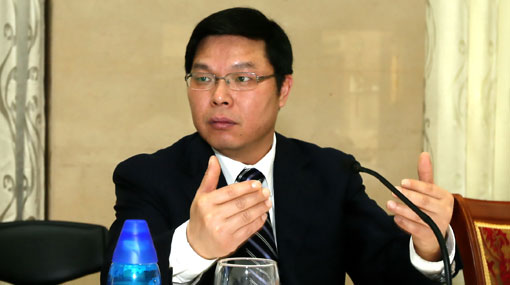A recent meeting between Prime Minister Mahinda Rajapaksa and the Chinese Ambassador Qi Zhenhong was held to discuss urgent financial support for COVID-19, its funding and the country’s mobilisation of foreign financing.
Prime Minister Rajapaksa, who is also Minister of Finance, had briefed China’s top diplomat in Sri Lanka on the financial situation of the country and the position of Chinese financing, informed sources said.
At the meeting, the Chinese Ambassador has agreed to provide another 500,000 doses of the Sinopharm vaccine soon to support Sri Lanka’s efforts to combat COVID-19, the sources said, adding that there was also a promise of financial support on a short-term and long-term basis.
Meanwhile China is in the lead in providing low interest financial support cash by way of loans but no grants to Sri Lanka during the past few years. The 20-year loan has a concessional fixed interest rate of 2.5 percent, with a 6-year grace period.
It has provided US$ 679.4 million as loans but without offering a single grant to support the country’s public investment programme during financial year 2020/2021 compared to $1.06 billion ($ 1,061.7 million) in 2019/2020, Finance Ministry financial statements revealed.
These Chinese loans of $679.4 million in 2020/2021 include $500 million of Foreign Currency Term Financing Facility extended by the China Development Bank for budget support purposes.
Such loans were sometimes collateralised by strategically important natural assets with high long-term value (even if they lack short-term commercial viability) or with soft to high interest rates.
Although China is not providing any grants to Sri Lanka, other donor countries and multilateral financial agencies are continuously extending grants to the government’s development activities, they said.
Foreign grants from bilateral sources declined to Rs. 2.8 billion in 2020 from Rs. 5.1 billion in 2019, while foreign grants from multilateral agencies also declined to Rs. 2.5 billion in 2020 from Rs. 2.8 billion in 2019.
Development partners, which provided grants during 2020, included the US, Japan and the Asian Development Bank.
The performance of mobilising foreign financing during the period was adversely affected by the COVID-19 pandemic, he pointed out.
Instead of traditional donors like Europe and multilateral agencies that have strict aid guidelines of their own, Sri Lanka instead favours “nontraditional” donors that are newer global financial powers who are more willing to accommodate flexible terms and conditions with funding, he said.


